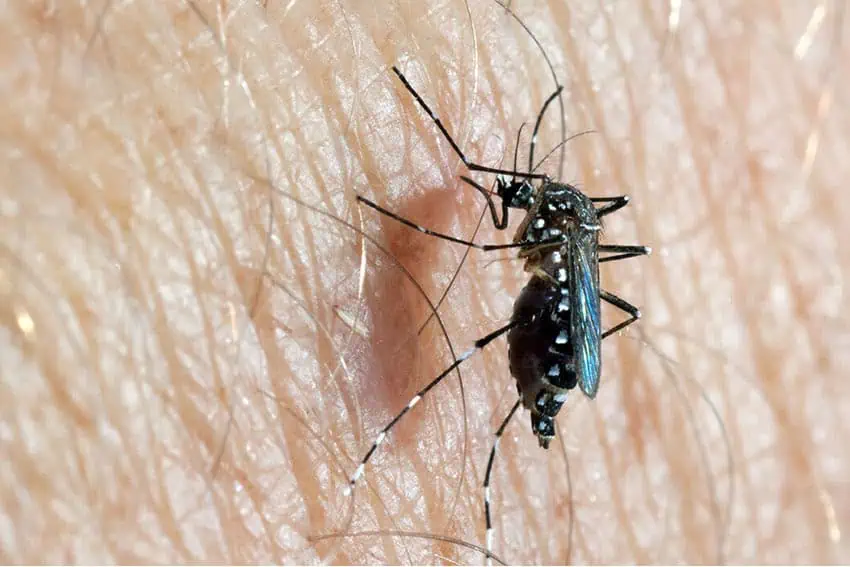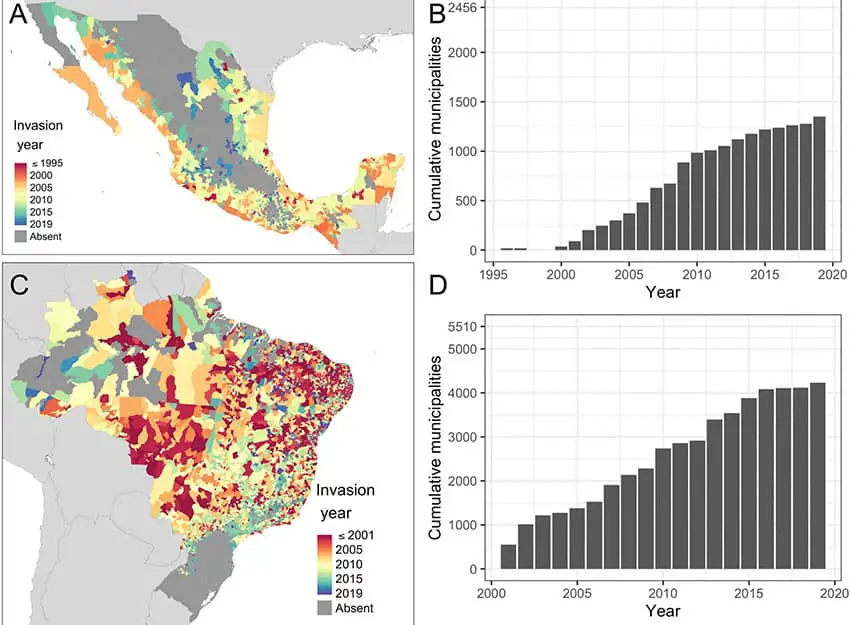Dengue cases in Mexico are continuing to rise in 2024, with the federal Health Ministry reporting 14,877 laboratory-confirmed cases of the mosquito-borne tropical disease through the first 22 weeks of 2024 — five times more than in the same period last year.
Last year over the same period, there were just 2,998 laboratory-confirmed dengue cases across all of Mexico, according to the Health Ministry, with two deaths. This year, the National Committee for Epidemiological Surveillance has reported 26 deaths.

And according to the Pan-American Health Organization (PAHO), the real number of dengue cases in Mexico may be even higher: in its Epidemiological Week 22 report for Mexico, it said the number of dengue cases reported to PAHO in 2024 is so far 78,266.
Its number of laboratory-confirmed cases, however — 14,889 — closely matches Mexico’s Health Ministry numbers. Laboratory-confirmed cases are the most accurate reports, but not all reported cases can be confirmed in a lab due to a lack of access to testing facilities and other factors.
Meanwhile, a new study published in the academic journal Nature Communications predicts that dengue cases in Mexico will only worsen in the coming decade, as the virus invades new municipalities where it has not been seen before.
The study, published on May 28, predicts that by 2039, 81% of Mexican municipalities will be affected by dengue, a significant increase from the 16 municipalities impacted in 1996.
Between 2000 and 2010, the infection spread to 965 municipalities, and by the end of 2019, at least 1,350 municipalities were affected.
According to the research, dengue’s further expansion will occur mainly in the higher-altitude areas of Mexico’s central plateau, with an influx expected to hit the Tijuana area from 2027 to 2030 and Mexico City in 2038 and 2039.

The study, which used artificial intelligence to analyze data from over 8,000 municipalities in Mexico and Brazil — the two largest Latin American countries — also found that 97% of Brazilian municipalities will face dengue outbreaks by 2039. The predictions were based on 25 years of climate data, epidemic records and genetic evolution history.
What is dengue?
Dengue is a mosquito-borne viral disease primarily transmitted by female Aedes aegypti mosquitoes, which also can spread yellow fever. There are on average over 100 million cases worldwide annually, and 20,000–25,000 deaths.
Symptoms range from high fever, headaches, body aches, nausea and skin rashes to severe complications such as difficulty breathing, severe bleeding and organ failure.
Although most people recover within one or two weeks, some can develop severe forms that require hospitalization and can be fatal if not treated promptly. Symptoms of the disease can also recur years after recovery.
With no specific treatment available, managing the disease relies heavily on preventive measures and effective vector control.
Where are dengue cases occurring in Mexico?
Although dengue fever infections have been documented across Mexico, five states account for 63% of the more than 14,000 confirmed cases reported so far in 2024, according to the Health Ministry:
- Guerrero 3,344
- Tabasco 2,746
- Veracruz 1,385
- Michoacán 953
- Colima 939.
The data is current through June 2.

How is Mexico combating dengue?
PAHO recently issued an epidemiological alert urging Mexico, Central America and the Caribbean to enhance surveillance, diagnosis and vector control efforts.
One example of that is the Yucatán government launching the Mosquitoes Buenos! program, also called the Uts K’oxol program in Mayan (Good Mosquitoes! in English).
Conducted in partnership with the Autonomous University of Yucatán (UADY) and Michigan State University, the initiative — funded by USAID and Mexico’s National Council for Science and Technology (Conacyt) — began on May 28 by releasing 170,000 male mosquitoes bred in a laboratory at UADY and infected with Wolbachia, a natural bacteria found in many insects but not generally in Aedes aegypti mosquitoes.
These infected males will then mate with female Aedes aegypti mosquitoes, who will produce infertile eggs that will not hatch. Preventing the development of viable offspring will, over time, reduce the population of mosquitoes that transmit dengue and the similar viral diseases Zika and chikungunya.
The initiative calls for hundreds of thousands more Wolbachia-infected male mosquitos to be released before the rainy season and throughout the year.
The Yucatán Health Ministry (SSY) did the initial release in front of students at a primary school, where a health official also talked about the importance of discarding pots and pans and other vessels that accumulate water and provide breeding sites for mosquitoes.
PAHO advises eliminating mosquito breeding sites, using repellents and wearing protective clothing. It offers resources and training about dengue through a free online course.
With reports from La Jornada, La Jornada Maya and TeleSur
